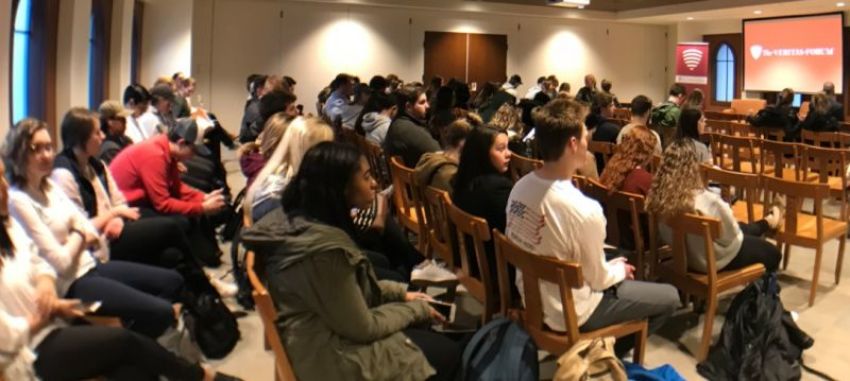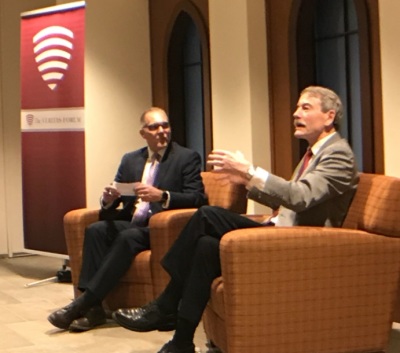Saying Science and Religion Are Incompatible Is a 'Myth,' 'Untrue to History,' Says Physicist

The claim that science and religion are incompatible entities is a "myth" and "untrue to history," according to a physicist speaking at an event held at Quinnipiac University.
Ian Hutchinson, plasma physicist and Professor of Nuclear Science and Engineering at the Massachusetts Institute of Technology, gave remarks at a Veritas Forum event held last week titled "Can Science Explain Everything?"

During his comments, Hutchinson argued that the common idea that science and faith are in conflict with one another was incorrect and rejected by historians who specialize in the history of science.
"That has been thoroughly debunked by historians of science in the past 50 years as untrue to history. Serious Christians, including clergy, were predominant in developing modern science for centuries," said Hutchinson.
"But the myth still exerts powerful influence both on secularists and very often also on Christians. Its sustained by a frequent claim that there's no evidence for Christianity, but that's untrue."
Hutchinson said that while he believes that science cannot prove Christianity, there is a lot of evidence to vindicate Christian beliefs "in history and in the lives of believers." The physicist stressed that science cannot answer every claim and by its nature cannot quantify many concepts, such as justice, altruism, and friendship.
Hutchinson also pointed out that during his career as a scientist at MIT, he did not encounter a thoroughly secular environment.
"You might think MIT, because it's the high temple of science and technology, would be a godless place. It isn't a godless place. There's lots of Christians and people of different faiths there, both on the faculty and amongst the students and amongst the staff," Hutchinson continued.
There has long been debate over whether science and religion are incompatible. In 2011, researchers at Rice University found that only 15 percent of scientists considered faith and science as incompatible.
Sociologist Elaine Howard Ecklund, lead author for the 2011 study, stated that the majority of respondents believed that religion and science only sometimes conflict.
"Our research has found that even within the same person, there can be different views. It's very important to dispel the myth that people believe that religion and science either do or don't conflict. Our study found that many people have much more nuanced views," explained Ecklund at the time.
The Veritas Forum event came months before the pending release of Hutchinson's latest book, titled Can a Scientist Believe in Miracles? An MIT Professor Answers Questions on God and Science.
Scheduled for release this September by Veritas Books, the book is based off the many questions Hutchinson has been asked regarding religion and science.
"Hutchinson answers a full range of inquiries with sound scientific insights and measured Christian perspective," noted the book's description on Amazon.
"Without minimizing challenging questions, he explores how science and Christianity are mutually supportive and intellectually consistent. Both God and science truthfully address our curiosity and destiny."



























